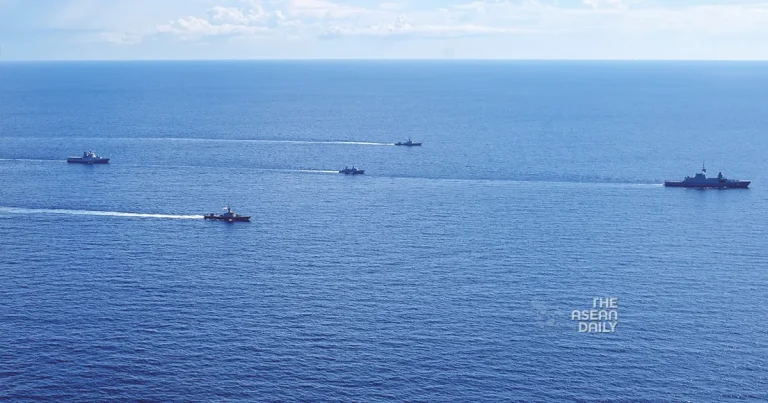18-3-2024 (MANILA) Analysts underscore the strategic significance of a proposed Philippine port in Batanes, situated at the critical Luzon Strait, which would hold considerable geopolitical importance for both Manila and Washington, regardless of a Taiwan conflict.
The envisaged port, primarily funded by the United States, is poised to offer multifaceted benefits to the Philippines. During peacetime, it would enable Manila to enhance surveillance of its northern maritime borders. However, in the event of a conflict, the port could serve as a vital transit point for logistical support and the evacuation of Filipino nationals.
In an interview during a Philippine Navy event on March 9, Batanes Governor Marilou Cayco disclosed plans for the construction of this US-funded civilian port in the country’s northernmost archipelagic province, facing the Taiwan Strait. Cayco further revealed that discussions regarding the new facility would commence with the arrival of a US Army detachment in late April.
Strategically positioned less than 200km from Taiwan, Batanes assumes heightened significance in the event of a cross-strait conflict. Given Beijing’s stance on Taiwan, viewing it as an integral part of China, the proposed port’s location gains prominence. Notably, while most nations, including the US, do not recognise Taiwan as an independent state, Washington opposes any attempt by China to forcibly annex the self-governing island.
The proposed port emerges amidst escalating tensions between China and the Philippines in the South China Sea, with Beijing deploying coastguard ships to disputed areas. Felix Chang, a senior fellow at the US-based Foreign Policy Research Institute, emphasised the strategic value of a port in Batanes, capable of servicing multiple large vessels.
Chang highlighted the port’s potential contributions, including providing fuel and services to maritime vessels, enhancing border surveillance, and serving as a strategic point for logistical operations and evacuations during conflicts.
In light of Manila’s proximity to potential regional conflicts, Chang observed the complexities facing the Philippines. However, he noted Manila’s efforts to bolster regional stability by collaborating with the US and its allies, such as constructing the port in Batanes.
The proposed port elicited a response from the Chinese embassy in Washington, with spokesman Liu Pengyu cautioning relevant parties in the Philippines against crossing the “red line” regarding the Taiwan issue.
Julio Amador, CEO of Amador Research Services, highlighted the potential spillover effects of conflicts into the Philippines and emphasised the port’s role in upholding maritime security and fostering economic activities.
With Batanes susceptible to natural disasters, the new port could facilitate humanitarian and disaster response efforts, according to security strategist Chester Cabalza. Cabalza noted the Philippines’ shift towards a robust security policy, exemplified by the Comprehensive Archipelagic Defence Concept (CADC), aimed at safeguarding Philippine territory and exclusive economic zones.
Under President Ferdinand Marcos Jr.’s leadership, the Philippines has signalled its commitment to challenging China’s unilateral actions in disputed waters, evident through bolstering maritime capabilities and military cooperation with allies. As Marcos Jr. seeks to enhance Manila’s maritime and naval capabilities, the Philippines remains steadfast in its stance amid regional tensions.
The upcoming Balikatan military exercises between the US and Philippines underscore Manila’s commitment to strengthening deterrence measures amid geopolitical risks in the region, particularly in the Taiwan Strait and the South China Sea.




